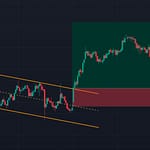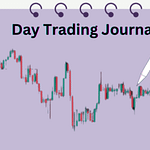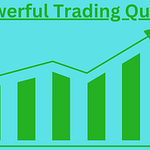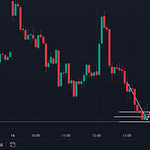Imagine a trader sitting in front of their computer screen, watching the market fluctuate rapidly. Their heart races as they try to decide whether to buy or sell. The pressure mounts as they see their investment fluctuate, and they feel the weight of each decision they make.
In the world of stock market trading, psychology plays a crucial role in how traders make decisions. Emotions like fear, greed, and confidence can heavily influence their choices, often leading to unexpected outcomes.
Understanding the aspects of psychology in trading is essential for making informed decisions and navigating the complexities of the market effectively.
Table of Contents
ToggleUnderstanding stock market Trading (Options or Index Trading)
In stock market trading Options trading or index trading is like making a bet on the future price of a stock, indexes or other assets. It’s a way for people to make money by predicting whether the price will go up or down.
It’s important in financial markets because it gives investors more flexibility and opportunities to profit.
There are two main types of options: call and put options. A call option gives you the right to buy a stock at a certain price (called the strike price) before a specific date (expiration date).
A put option, on the other hand, gives you the right to sell a stock at a certain price before the expiration date. So, call options are like betting that the price will go up, while put options are like betting that the price will go down.
The Rational Investor Myth About Psychology in Trading
Debunking the Myth:
Many people think that investors always make smart decisions based on logic and facts. But in reality, emotions can heavily influence how people make decisions about buying and selling stocks.
Even though investors might try to be rational, emotions like fear and greed can sneak in and affect their choices.
Behavioral Biases:
Sometimes, people make decisions based on feelings rather than facts. This can lead to common biases like:
Loss aversion:
The fear of losing money can make investors hold onto losing stocks instead of selling them.
Overconfidence:
People might think they know more than they actually do, leading them to take bigger risks.
Herd mentality:
When everyone else is doing something, people might follow along without thinking for themselves, which can lead to big swings in the market.
Crucial Factors of Psychology in Trading
Fear and Greed:
Fear of losing money and greed for making more can change how people trade. When people are afraid of losing, they might sell too soon, even if they could make more later.
When people are greedy, they might take big risks hoping for a big payoff, but it could also mean losing a lot.
Risk Perception:
Different people see risks in different ways. Some might be comfortable with taking big risks, while others might prefer safer bets. How people perceive and manage risks can affect their trading decisions.
Confirmation Bias:
Sometimes, people only look for information that agrees with what they already think. This means they might ignore facts that go against their beliefs.
In trading, this can lead to making decisions based on what they want to hear rather than what’s really happening in the market.
Emotional Intelligence in Trading
Self-Awareness:
It’s really important to know how you’re feeling when you’re trading. If you’re feeling scared or greedy, it can affect your decisions. Recognizing these emotions can help you make smarter choices.
Self-Regulation:
Sometimes, we make decisions without thinking them through, especially when we’re feeling strong emotions. It’s important to have strategies to stop yourself from making impulsive decisions.
Taking a deep breath or stepping away from the computer for a moment can help you think more clearly.
Empathy:
Understanding how other traders are feeling and what they might do can help you make better decisions too. If everyone is feeling nervous and selling their stocks, it might be a good idea to do the same.
Being able to put yourself in other traders’ shoes can give you an edge in the market.
Cognitive Biases and Decision-Making
Anchoring Bias:
When we make decisions, we often use the first piece of information we get as a reference point. This can influence our decisions even if that information isn’t really that important.
Availability Heuristic:
Sometimes, we think something is more likely to happen just because we remember it more easily. So, if we hear a lot about something bad happening in the market recently, we might think it’s more likely to happen again, even if it’s not.
Framing Effect:
The way information is presented can change how we see it. For example, if someone says a stock has a 90% chance of success, we might see it as a good opportunity. But if they say it has a 10% chance of failure, we might see it as too risky, even though it’s the same information.
Overcoming Psychological Barriers
Mindfulness Techniques:
Mindfulness means paying attention to the present moment without judgment. It can help us stay focused and calm when trading, which can reduce the urge to react emotionally to changes in the market.
Trading Plans:
Having a trading plan is like having a roadmap for trading. It helps us stick to our strategy and avoid making impulsive decisions based on emotions.
With a plan, we know what to do in different situations, which can help us stay on track.
Journaling:
Keeping a trading journal is like keeping a diary of our trades. It helps us track our emotions and see patterns in our trading behavior. By writing down our thoughts and feelings before, during, and after trades, we can learn from our mistakes and make better decisions in the future.
Journaling helps traders very much in building best psychology in options trading.
The Role of Education and Training of Psychology in Trading
Investor Education:
It’s really important to learn about both the money stuff and the feelings stuff when it comes to trading.
Understanding how the market works and how emotions can affect our decisions can help us trade smarter and avoid making costly mistakes.
Simulation and Practice:
Just like practicing for a game or a test, practicing trading can help us get better at it. Simulated trading lets us make trades without risking real money, so we can learn from our mistakes and improve our decision-making skills before diving into the real market.
In conclusion, psychology in trading plays a huge role because our emotions can affect the decisions we make.
Understanding how psychology influences trading can help us make smarter choices and improve our chances of success in the market.
Traders need to take care of their mental well-being and work on developing emotional intelligence.
By being aware of our emotions and learning to control them, we can make better decisions and achieve better results in our trading.
Remember, in the world of trading, it’s not just about numbers and charts. As Warren Buffett once said, “The most important quality for an investor is temperament, not intellect.” So, let’s focus on mastering our emotions and mindset to become more successful traders.










